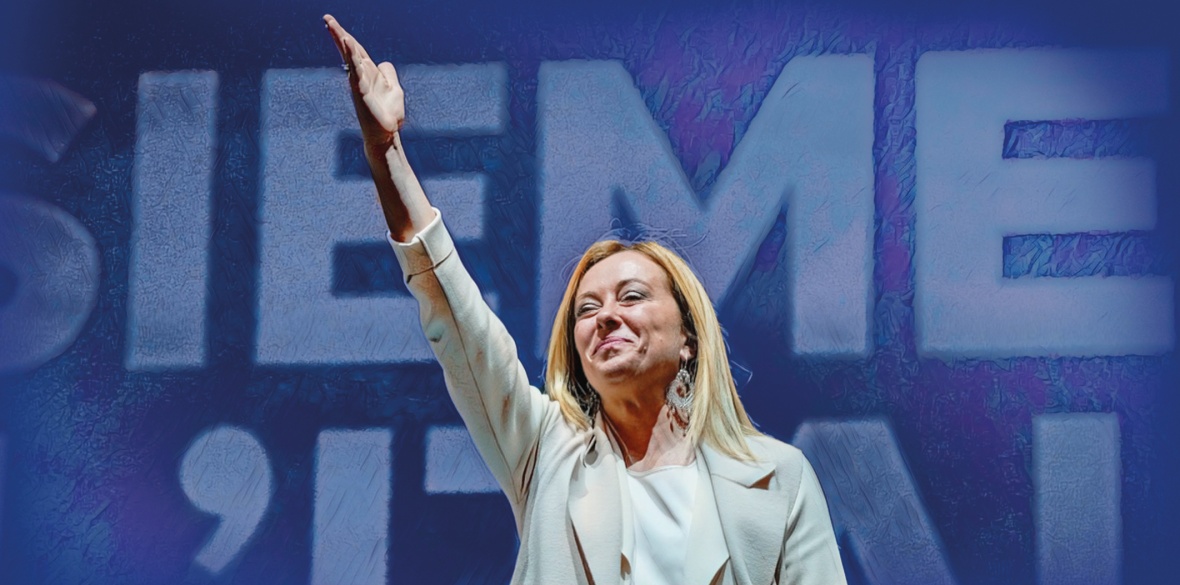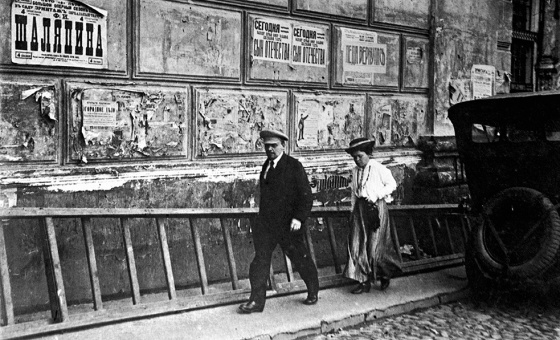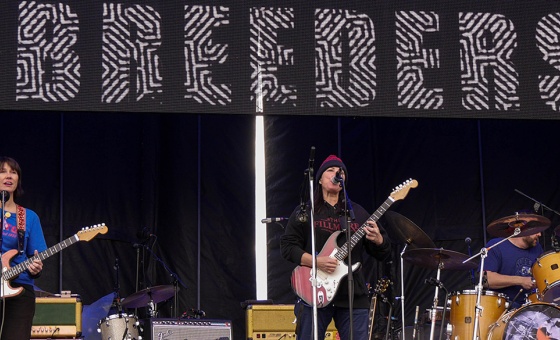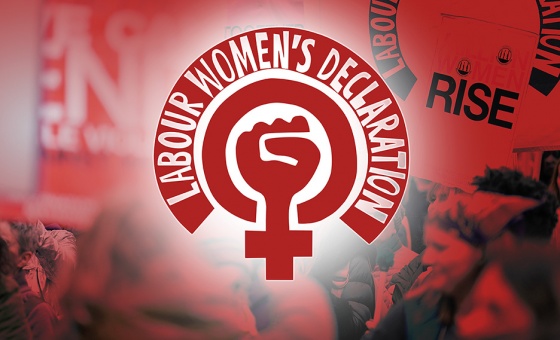This is the last article you can read this month
You can read more article this month
You can read more articles this month
Sorry your limit is up for this month
Reset on:
Please help support the Morning Star by subscribing here
WELL-EVIDENCED and convincing, David Broder’s book Mussolini’s Grandchildren tells the story of how veterans of the 1925-45 dictatorship were able to refound an unashamed “fascist party in a democracy” after their defeat in World War II, and how that party — renamed Fratelli d’Italia — is now in power following the 2022 elections, with Giorgia Meloni serving as Prime Minister.
For what is a fairly straightforward work of history, it is remarkably engaging, dryly humorous and prescient in its lessons for global politics. Testament to its impact, before the book’s release, Meloni was already denouncing its author; since its release, despite the fact it is written in English, the book is currently outselling Meloni’s autobiography on Italian Amazon. I ask David Broder about the nature of the modern Italian far right and why it is so important to understanding the direction of politics across the West.
Even the title mentions Mussolini, yet you insist Giorgia Meloni’s government isn’t a return to the past. What do you mean by that?
The title is Mussolini’s Grandchildren — the point being that her party is both rooted in regime-era fascism, but has also evolved over time, and this is in many ways a postmodern phenomenon. The ambiguity is well-rooted in the idea of “neither restoring nor reneging on the regime,” taken up by the postwar neofascist party called Movimento Sociale Italiano (MSI).
The change isn’t just because Fratelli d’Italia have “gone moderate” but because the general terms of political conflict have changed since the end of World War II. To take Meloni personally, she got involved in the MSI in 1992, once the USSR had fallen, Italy was on its way into the EU, and the political violence of the 1970s “years of lead” had been stamped out. So, the tradition, the ideas, and the identity (especially the idea of a homogeneous, ethnically defined nation), draw on historical fascism, yet at the same time the expectations of what is possible, what the intensity of the conflict is, have changed.
This isn’t only a lessening of conflict, due to the Italian state’s weakness. In some ways, the success of Fratelli d’Italia today is possible precisely because it is part of a wider right-wing political space — indeed, across the West — that has become more obsessed with civilisational decline. From Silvio Berlusconi in the 1990s onward, and in today’s international conservative movement, the broad right has abandoned any kind of barrier against fascists and their political heirs.
So, there’s a kind of tension: the stakes of conflict are less dramatic than in the Cold War, yet the identitarianism, the idea of ethnic challenge, is even more extreme. This is a properly postmodern phenomenon: people who have lost hope in the future, in progress, in a democracy that has been hollowed out, resort to older identities to find their bearings, and even conspiracy theories like the Great Replacement.
I think a good example of this is the way Meloni’s party talks about Mussolini-era fascism — not so much to celebrate the conquest of a new empire, or the heroes of military expansionism, but to focus on the victims of Yugoslav partisans, who thanks to the second Berlusconi government have an official state memorial day in their honour. Italian rightwingers routinely allege that Tito’s forces conducted “ethnic cleansing” against Italians after the end of hostilities.
So, clearly this is an indulgent vision of the fascist past, even ignoring the fact that Mussolini invaded Yugoslavia in 1941, and that most of the victims of these killings were representatives of political and economic power rather than civilians. Misrepresenting them as akin to people murdered in the Holocaust, they are cast both as pure innocents, without agency, and yet the clear aim is to whitewash the history of Italian fascism itself, as a pre-emptive reaction against a communist threat, and thus undermine the republic’s foundational anti-fascism. In turn, Fratelli d’Italia connects this story to modern-day “immigrationist plots,” to claim that Italians are under threat of being overwhelmed by Africans and Arabs and thus “going extinct.”
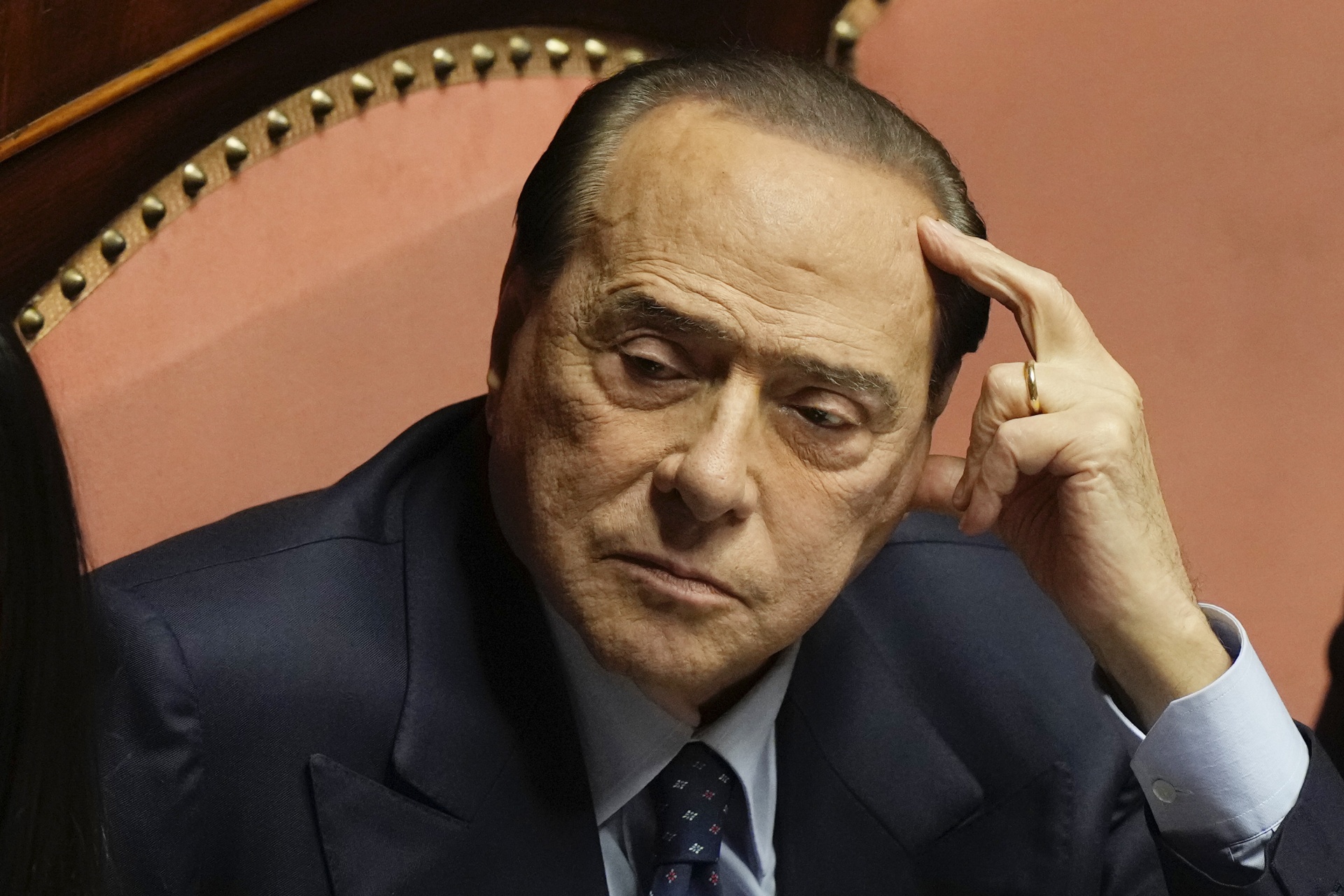
Why has your work — that of an English historian living in Germany — created such a stir in Italy itself, where you might expect them to know much of the story?
I think you are talking about the reaction to my New York Times piece last July. On that occasion, several representatives of Meloni’s party — including herself — alleged some sort of conspiracy by Italian and US think tanks and “powers-behind-the-scenes” to destabilise her.
Part of this is purely ignorant provincialism — an obsession with what foreign media say, coupled with the misunderstanding that Anglophone outlets are quite as obsequious to their owners as Italian media are. Evidently, if someone like me writes for the NYT, or the Financial Times reviews my book, this is not because high finance or the US Democratic Party has decided that things should be so.
My point in the article in question was that the Italian case is a grim indication of a broader future: a hollowing-out of democracy accompanied by a kind of zombie anti-communism, that turns all manner of identitarian nationalists into victims of a supposed overmighty progressivism, invisible in reality.
Nonetheless, I should admit that the kind of facts I mention in my articles are easily exploited by the far right: they claim that they are falsely accused of plotting a “restoration of the fascist regime” and that this is mendacious hyperbole. So, there is a kind of tension between both liberal media looking to foreign press for judgement on Italy, and then far-right accounts which revel in the hostility they face in order to rile up their own supporters.
What could the Italian left have done differently after 1990 that would have prevented the rise of the far right?
It depends on what you mean by left. But there are basically two distinct ways of answering the question.
One is that ex-Communist centre-left liberals have often leaned into Italian-nationalist falsifications of history to distance themselves from their own communist past. For example, on a Memorial Day for Italians killed by Tito’s partisans in 2007, ex-Communist president Giorgio Napolitano claimed that the “Slavic annexationist fury” on the Italian-Yugoslav border had produced “ethnic cleansing.” This is factually untrue and has played an important role in legitimising fascists by promoting the idea that Italy was subject to “twin totalitarianisms,” Nazi and communist, thereby muddying the waters of Mussolini’s own crimes.
The other is that the left has failed to maintain its support base, ie by offering the mix of material advance and spiritual enthusiasm which are key to any working-class mobilisation. Over the last three decades, Italian workers’ wages have fallen in absolute terms, and economic growth has been close to zero, yet the main centre-left party (the Democrats) doggedly defends the economic model which has produced these results, combining neoliberalism and blind obedience to the demands of the European Union. Even now that they have a new, more left-wing leader in Elly Schlein, I don’t think they worked through these failures.
Surely anti-fascism can be a cynical, last-minute election ploy (“keep the barbarians from the gates”). But in reality, the most complacent toward Meloni are also the most likely to be full-throated neoliberals. Lest we forget, until last summer, the Democrats were in government together with Berlusconi and the Lega, despite past “anti-fascist” appeals to vote against them, and under the helmsmanship of longtime central banker Mario Draghi.
Anti-fascism is a necessary but insufficient condition of left-wing politics. In the postwar decades, it celebrated workers’ historic role in fighting fascism and German occupation and building Italian democracy and combined this with the social promise of the postwar constitution. Anti-fascism today also means rejection of the identitarian and reactionary mores of the right — which is not even “welfare-chauvinist”, but Reaganite. But it also has to rekindle the sense that a better, more equal society is possible, rather than just call for a more “competent” administration of market society.

By turning fascists killed in political violence into martyrs and their parties into victims of political intolerance, the “post-fascist” tradition Meloni leads has used the left against itself. Should specifically anti-fascist campaigning be abandoned as self-defeating — or is that exactly what the right wants?
Meloni’s confidence speech to parliament in October mentioned Sergio Ramelli, an 18-year-old killed by far-left militants in 1975. He is important because he stands for the innocence of the postwar MSI, and the prime minister’s claim to denounce “violence” in general in favour of a “pacification” of Italian society.
Such approaches are based on drastic historical revisionism, whitewashing the whole history of postwar neofascist terrorism and the MSI’s particular role as an umbrella for extremist subcultures. A leader whom Meloni often praises, Giorgio Almirante, was not only a regime-era anti-semitic propagandist but used his parliamentary immunity to cover up his involvement in terrorist conspiracies.
Should the left give up on these disputes, and allow Meloni to falsify history? Of course not. That doesn’t mean they’re the be-all and end-all of political action. The same could be said for confronting the smaller but well-rooted neofascist groups like Lealta Azione and CasaPound, who have a certain presence even in schools.
In practice, government representatives often have their own way of combining identitarian “culture wars” and more obviously “class politics.” Last week Agriculture Minister Francesco Lollobrigida, who is Meloni’s brother-in-law, said that benefits claimants should do free farm labour, rather than imagine imported “slaves” will do it. So, immigrants are blamed for stealing jobs, but the unemployed are also blamed for their laziness which creates the need for immigrants.
I think in these circumstances, a left that consistently stands up for the dignity of workers would be able to resist the government narrative. So, anti-fascism, yes, but based in class politics.
David Broder is Jacobin magasine’s Europe editor. Follow him on Twitter @broderly.
Mussolini’s Grandchildren is published by Pluto Press. The London book launch, The Far Right in Italy and the World, will be held on Thursday April 13 7pm at Pelican House 144 Cambridge Heath Road.
